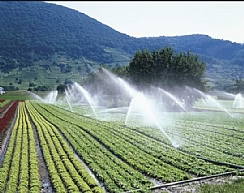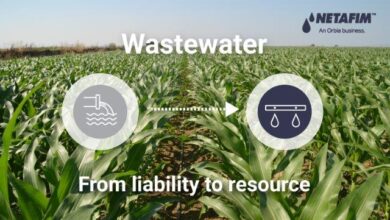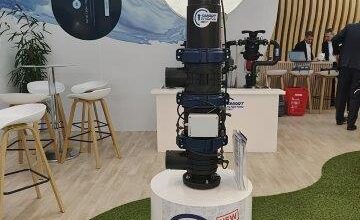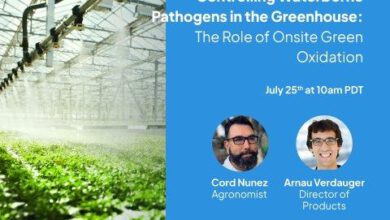New Development Prevents Irrigation Water Pollution
Catalyst AgTech company developed a molecule separating pesticides before reaching ground water

 The constantly growing demand for food in the world increases the usage of pesticides for crops. But one of the risks resulting from that is that pesticides with high survival abilities can stay in the ground for many years and contaminate the ground water. A new technology by the Israeli company Catalyst AgTech, developed by the Weizmann Institute, uses an additive that separates the pesticides into non-contaminating materials, before they reach the depths of the ground water.
The constantly growing demand for food in the world increases the usage of pesticides for crops. But one of the risks resulting from that is that pesticides with high survival abilities can stay in the ground for many years and contaminate the ground water. A new technology by the Israeli company Catalyst AgTech, developed by the Weizmann Institute, uses an additive that separates the pesticides into non-contaminating materials, before they reach the depths of the ground water.
The technology was developed in the Weizmann Institute by Prof. Brian Berkowic and Dr. Yishai Dror, from the Department of Environmental Sciences and Energy Research is designated to prevent from toxic pesticides with high durability, to seep into the ground water and cause environmental pollution(Porphyrines and their derivatives, such as B12) that act as catalysts and conduct electrons and thus, cause the toxic chemicals to separate into un-harmful materials, after they completed their task. The separation of the materials is made in the deep layer that has no oxygen, under the layer in which the roots of plants are found, where there is a reaction with the catalyst which separates the pesticide, neutralizes the toxic materials and prevents its seeping into the ground.
Yeda Company, a research and development company that is the commercial suit of Weizmann Institute and the owner of the intellectual property created in the institute, signed recently, after a negotiation of a few months, on a commercial agreement with Catalyst AgTech, who recently joined the Mofet technological greenhouse, owned by Trendlines. The agreement gives the company an exclusive license to develop and make the technology commercial, while using thee knowledge patent, which is registered in Europe and the US.
Shalom Nachshon, an entrepreneur and CEO of Catalyst AgTech, who has broad background in development, believes it is a breakthrough technology, with a broad environmental impact, and that the company’s activity within the greenhouse will enable it to reach shortly very large markets. “As of now, there is no alternative means for pest control which has the same effectiveness of the materials used today. Nonetheless, pesticides such as Atrazine, which was banned in Europe a few years ago, because of its potential to reach ground water and is very common today in usage of corn and wheat crop in the US and Canada, stay in the ground for many years and might cause severe environmental harm when seeping into the ground. Adding the catalyst to the pesticide activates a self-destruction mechanism which actually separates the pesticides into non-contaminating materials, while preserving the effectiveness of the material on the crops. Mofet Greenhouse, which focuses on Israeli start-up companies in food agriculture and agritech, is for us the natural place for such a development and also as a means to base relations with investors and opening the door to international markets”.
Until now, successful experiments with the technology were made in laboratory conditions and now Catalyst AgTech continues towards reinforcing the findings in field conditions and finding the proper pairing between additional pesticides and the catalyst that causes the reaction.
Amir Neirberg, Yeda CEO: “We are very happy about the cooperation with Mofet Greenhouse, since such an agreement is a realization of Yeda’s vision, which was established by the Weizmann Institute to commercialize the scientists’ developments and actually turn research into tradable development. In this case, as in many past cases such as the “Copaxone” it is a real breakthrough that can change the world. Yeda will keep being a bridge between the scientists of the institute and entrepreneurs in Israel and abroad, while finding the business King’s Road, without obstacles and while managing the risks”.




